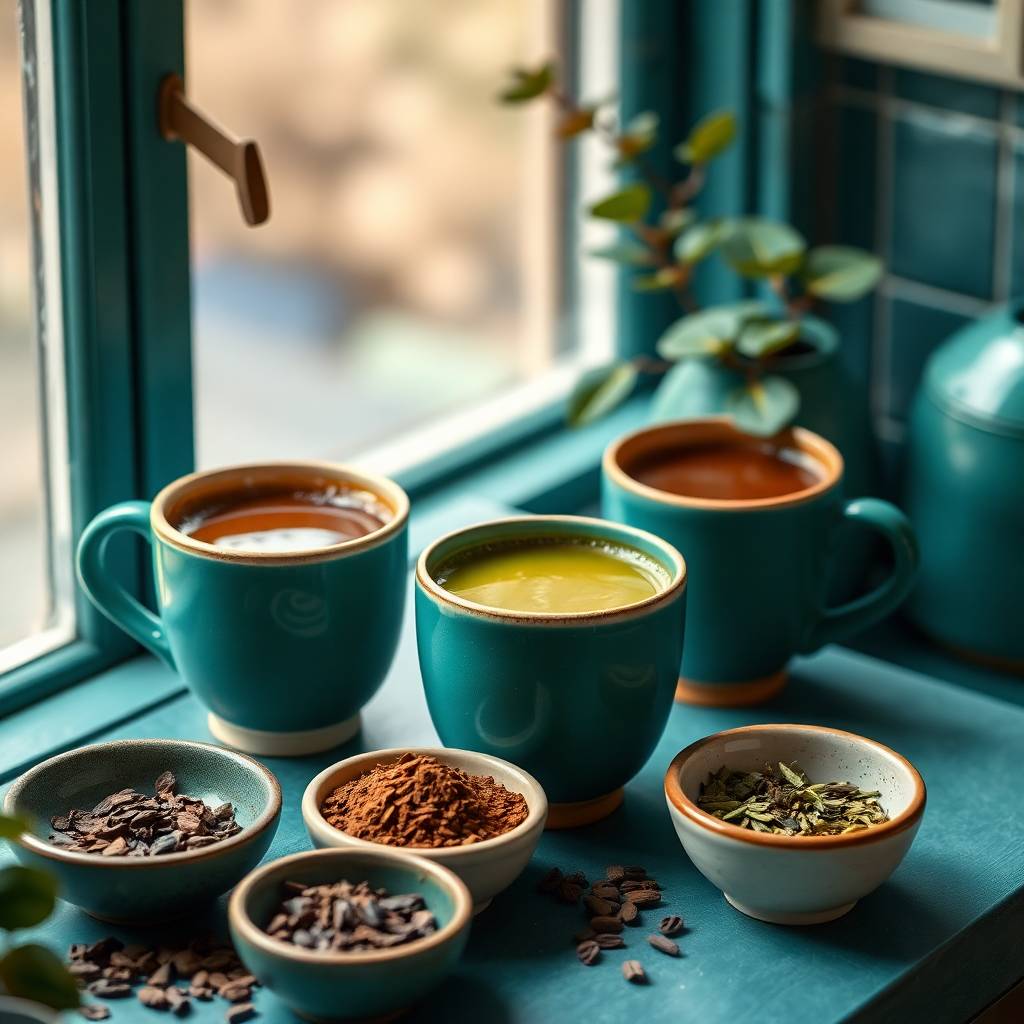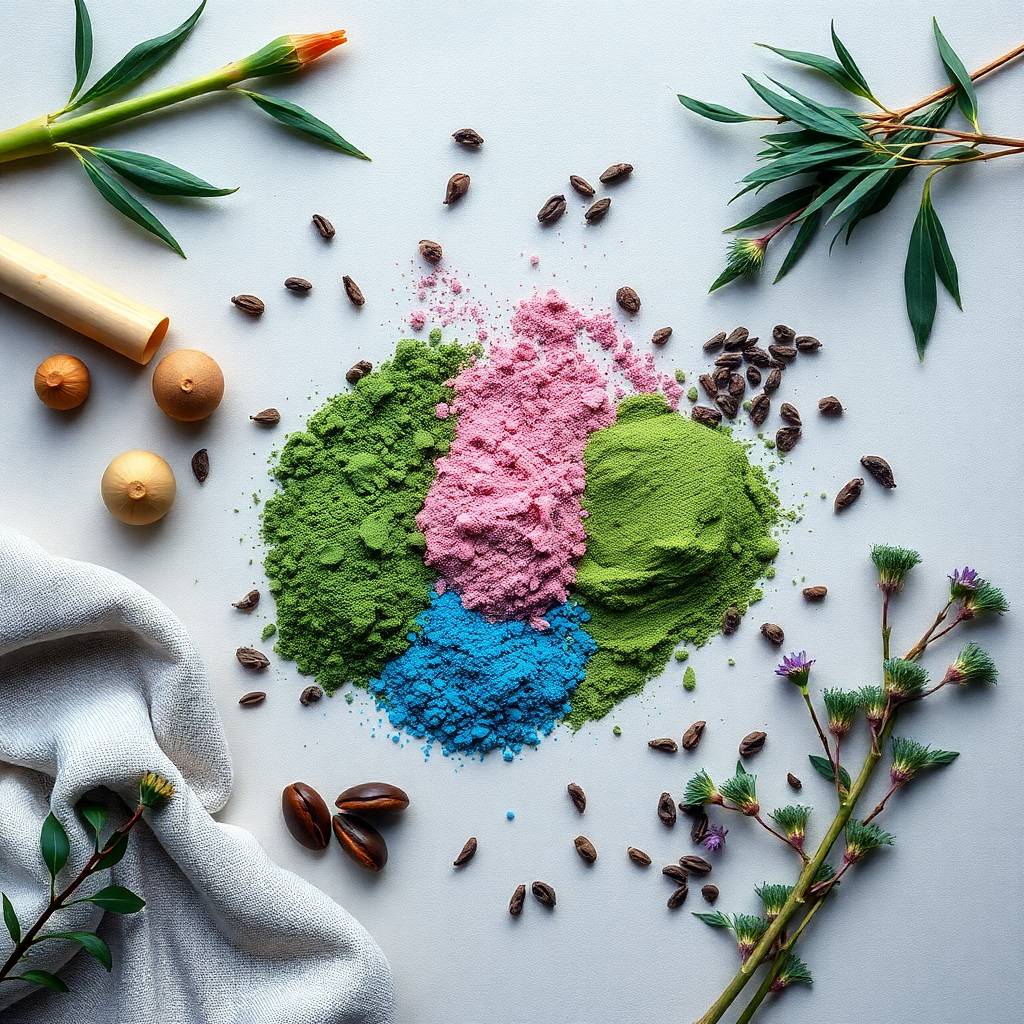Alternatives to Coffee: Exploring Healthy and Energizing Options

Why Consider Coffee Alternatives?
Coffee alternatives cater to a growing audience seeking balance in energy levels, better health, and sustainable options. Common reasons to switch include:
- Caffeine Sensitivity: Excess caffeine can cause restlessness, anxiety, and sleep disturbances.
- Health Consciousness: Many alternatives are packed with nutrients, adaptogens, and antioxidants.
- Taste Exploration: Coffee substitutes often provide unique flavors and aromas.
- Sustainable Choices: Some alternatives are more eco-friendly in terms of production and sourcing.
Popular Coffee Alternatives and Their Benefits
1. Matcha (Red, Blue, Pink)
Matcha, a powdered green tea, is a popular alternative to coffee. Variants like red, blue, and pink matcha provide unique colors and flavors. Rich in antioxidants, matcha delivers calm, sustained energy due to its natural compound, L-theanine.
- Benefits: Boosts focus, supports metabolism, and provides a gentle caffeine lift.
- Best For: Those seeking a natural, colorful, and calming energy boost.
2. Mushroom Coffee
Mushroom coffee blends medicinal mushrooms like lion's mane, chaga, and reishi with coffee alternatives. It’s known for supporting cognitive function, immunity, and stress reduction.
- Benefits: Enhances focus, supports immunity, and reduces caffeine jitters.
- Best For: People interested in functional foods with health benefits.
3. Chagaccino
This trendy beverage combines chaga mushrooms with milk or plant-based alternatives. Chagaccinos are creamy, nutrient-rich drinks that support energy and immunity.
- Benefits: High in antioxidants and adaptogens; promotes gut health.
- Best For: Coffee lovers seeking a creamy, healthier alternative.
4. Hojicha
Hojicha is a roasted green tea from Japan with a toasty flavor and low caffeine content. Its mild profile makes it a soothing drink for the evening.
- Benefits: Low in caffeine, high in antioxidants, and aids digestion.
- Best For: Tea enthusiasts seeking a relaxing alternative to coffee.
5. Ceremonial Cacao
Ceremonial cacao is pure, minimally processed cacao often consumed in rituals. It's rich in magnesium and flavonoids, offering natural energy and a mood boost.
- Benefits: Enhances mood, supports heart health, and provides steady energy.
- Best For: Individuals seeking a natural, warming energy source.
6. Adaptogen Drinks
Drinks like Magic Mind and adaptogen-rich blends help combat stress and enhance focus. These beverages often contain ingredients like ashwagandha, rhodiola, and maca.
- Benefits: Reduces stress, enhances mental clarity, and stabilizes energy.
- Best For: Busy professionals looking for functional beverages.
7. Sparkling Tea
Sparkling teas combine the refreshment of fizzy drinks with the health benefits of tea. They often come in low-caffeine or caffeine-free versions.
- Benefits: Hydrates while providing antioxidants and light energy.
- Best For: Fans of carbonated beverages who want a healthier option.
8. Beetroot Juice
Beetroot juice is a natural energy booster known for improving endurance and stamina. It’s packed with nitrates, which enhance oxygen flow in the body.
- Benefits: Boosts endurance, supports heart health, and is caffeine-free.
- Best For: Athletes or anyone seeking a pre-workout boost.
9. Ryze Superfoods
Ryze blends functional mushrooms with natural herbs to create a nutrient-dense alternative to coffee. It’s designed to enhance focus and energy.
- Benefits: Combines cognitive and immunity support with a low-caffeine profile.
- Best For: Health-conscious individuals seeking a comprehensive coffee replacement.
10. Everyday Dose
Everyday Dose combines collagen, nootropics, and adaptogens for a well-rounded energy boost. It’s formulated to support brain health, skin, and digestion.
- Benefits: Promotes mental clarity, gut health, and collagen production.
- Best For: Those looking for multitasking functional beverages.

How to Choose the Best Coffee Alternative for You
When selecting a coffee alternative, consider the following factors:
- Taste Preferences: Do you prefer earthy, sweet, or creamy flavors?
- Caffeine Needs: Are you reducing caffeine intake entirely or seeking a lighter dose?
- Health Goals: Are you focused on improving focus, immunity, or overall health?
- Convenience: Do you want a ready-made drink or something you can prepare at home?
Coffee Alternatives and Sustainable Choices
Many coffee alternatives, like matcha, ceremonial cacao, and mushroom blends, have a lower environmental footprint compared to traditional coffee. Choosing sustainably sourced products further supports eco-friendly practices.
Exploring a World Beyond Coffee
Coffee alternatives offer a range of flavors, benefits, and health boosts for every preference. Whether you’re cutting back on caffeine, exploring functional beverages, or seeking a new morning ritual, there’s a perfect option for you.
Platforms like GoFunlo, focused on supporting wellness and family-friendly activities, can help families discover alternatives that align with their health and lifestyle goals. As coffee alternatives gain popularity, they pave the way for a more balanced and sustainable approach to energy and focus.
#CoffeeAlternatives #HealthyLifestyle #Matcha #MushroomCoffee #Adaptogens #GoFunlo #SustainableChoices

